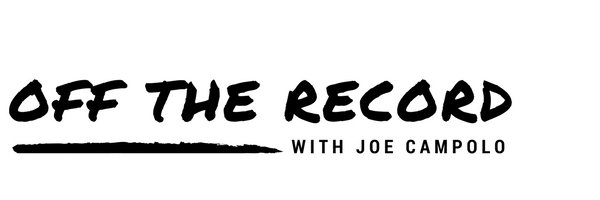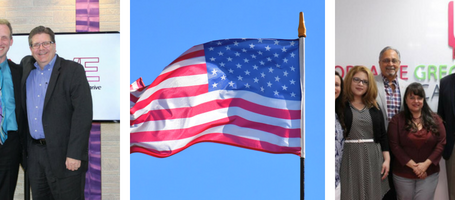On the “N” Word – Admittedly, when I first heard the Papa John’s story surrounding its founder’s use of the “n” word, I thought the company had overreacted. He didn’t use the word to refer directly to any person or group, but instead used it on a strategy call with  his marketing company about how Papa John’s could distance itself from racist groups, stating that “Colonel Sanders called blacks [the “n” word] and never faced any backlash.” He did not seem to be saying it in a racist context. What was the harm? Why is the “n” word the one word that simply can’t be spoken by a white person in any context without the word “racist” being used to describe the situation? Certainly, there are other horrible words people use, but the backlash (if any) when those words are used is never quite the same, even when those words are used to directly malign someone (e.g., Samantha Bee). And if the word is totally off limits, why is it (or a derivation of it) used so commonly by the black community, particularly in hip hop? I needed to understand this social dynamic better.
his marketing company about how Papa John’s could distance itself from racist groups, stating that “Colonel Sanders called blacks [the “n” word] and never faced any backlash.” He did not seem to be saying it in a racist context. What was the harm? Why is the “n” word the one word that simply can’t be spoken by a white person in any context without the word “racist” being used to describe the situation? Certainly, there are other horrible words people use, but the backlash (if any) when those words are used is never quite the same, even when those words are used to directly malign someone (e.g., Samantha Bee). And if the word is totally off limits, why is it (or a derivation of it) used so commonly by the black community, particularly in hip hop? I needed to understand this social dynamic better.
The “n” word is a variation of the Spanish and Portuguese noun negro, a descendant of the Latin adjective niger (“black”). The first reported use of the word in colonial America goes back to 1619, when John Rolfe used the term negars to describe the African slaves being shipped to the colonies. By the early 1800s, the word was firmly established as a derogatory term, and while racial slurs have victimized all racial and ethnic groups, I don’t think any group has endured as many racial “nicknames” as blacks. But unlike other slurs that seek to mock one stereotypical characteristic (lazy, cheap, drunks, etc.), the “n” word was created by a sick white culture to “remind” all black people they were worth “less” than white people. The beliefs that created the “n” word sought the complete dehumanization of all blacks, the same way Hitler and the Nazis sought to dehumanize all Jews.
There’s no dispute that blacks, Jews, and countless other groups continue to face insidious hatred every day. But I think many white Americans who understand the disgust that the Jewish community understandably feels when a swastika is displayed (a figure that came to symbolize the goal of eradicating the Jewish people from the planet) still don’t understand the emotions that the black community feels when they hear or read the “n” word – a word they were called while their babies were stolen, mothers were chained, slave ships were loaded, crosses were burned, people were hanged from trees, and churches were bombed and burned. Perhaps this is because many people alive today personally remember World War II and the horrors of the Holocaust, while no one alive today can personally recall an America with slavery. But against the history of the word and its meaning, there are strong reasons – not the least of which are common sense and decency – why white people should not use this word in any context.
What seems to complicate this conclusion for many is the prevalent use of a derivation of the “n” word (what I’ll call the “na” word) by the black community in song lyrics or to convey friendship. Numerous news reports over the years have focused on white people being criticized for using the “na” word while engaged in dialogue with a black person who used the word or for singing along out loud with the word in a song. Such reports cause some whites to claim that it is hypocritical for the black community to get upset because they are promoting the use of the word in society. Indeed, many respected black commentators have also denounced the use of the “na” word by blacks, claiming that changing a vowel here or there doesn’t change the hateful underpinnings of a word that should just die.
The most common explanation I found to support the use of the “na” word by blacks only is that black people now “own” the “n” word and all its derivations, and that the black community has the sole right to use it any way they choose (almost like a copyright claim). The argument continues that racist whites “gave” blacks the word when they branded them with it for hundreds of years, and that changing the spelling and using it in an affectionate way helps take away the pain and stigma associated with the word for so many generations. Of course, this is a metaphoric argument, as there can be no legal claim by blacks of ownership nor a legal prohibition on whites using the word, but it does beg the question as to why white folks would want to use the word (or any derivation of it) in the first place? Knowing the hurtful history and the reaction that will ensue with the use of the word, it just seems reasonable to expect white folks to stay away from using any form of it.
Of course, everyone is guaranteed the right under the First Amendment to say anything they want, but in relying on the First Amendment, Papa John’s has now found itself in the same conundrum that the NFL found itself in when it attempted to support players who wanted to kneel (and, in fact, that the players also found themselves in); while the Constitution protects your right to say something, it doesn’t shield you from people reacting to it. Hopefully, we can all use this to learn a lesson in empathy and civility. To quote my mother, “If you don’t have something nice to say, don’t say anything at all.”
WINE OF THE WEEK
This week’s wine is 2017 Chateau d’Esclans Whispering Angel Rosé ($21.99). There has been no shortage of Rosé wines to choose from this summer, but this one is my top pick. Dry and crisp, it was not very acidic, making it very drinkable with hints of strawberry and watermelon. We enjoyed it on the patio overlooking the water along with sushi and a cheese platter, and the pairing was perfect!
AROUND TOWN
CMM Live – We had a busy two weeks at the GVP Digital Media studio shooting two  episodes of CMM Live. Last week I welcomed Amanda Talty of the Tourette Association of America and Karen Boorshtein of Family Service League to the set. We talked about nonprofit collaboration, how TAA is working to increase the visibility factor of Tourette and Tic Disorders to help shut down bullying and ignorance, and how FSL has served for decades as Long Island’s safety net. These nonprofit leaders truly inspired me – stay tuned for more details on CMM’s next nonprofit initiative in the works.
episodes of CMM Live. Last week I welcomed Amanda Talty of the Tourette Association of America and Karen Boorshtein of Family Service League to the set. We talked about nonprofit collaboration, how TAA is working to increase the visibility factor of Tourette and Tic Disorders to help shut down bullying and ignorance, and how FSL has served for decades as Long Island’s safety net. These nonprofit leaders truly inspired me – stay tuned for more details on CMM’s next nonprofit initiative in the works.
I sat down this week with Alan Sasserath of Sasserath & Zoraian, LLP and Gregg Schor of Protegrity Advisors, both of whom shared critical insight into the tax and M&A issues impacting Long Island business owners. Missed a show? Head here to catch up.
Making an Impact – Congratulations to my good friend and partner Scott Middleton, who was honored with a Community Impact Award by East End Arts at their ARTworks Gala on July 19 at the Suffolk Theater. Scott has been doing great work since joining their board in 2017 and he’s made us all proud!
We’re Closed – Last Friday at Pace’s Steakhouse, my colleagues and I celebrated the long-awaited closing of a healthcare M&A deal. Congrats to Christine Malafi, Gregg  Schor and the CMM and Protegrity teams that worked hard to deliver tremendous value to our mutual client!
Schor and the CMM and Protegrity teams that worked hard to deliver tremendous value to our mutual client!
Golfin’ in the Rain – My colleague Joe Vozza and I enjoyed a wonderful afternoon of golf with Al Giaimis and Rob Caruana of Signature Bank on Wednesday at St. George’s despite the on-again, off-again rainy forecast. Great conversation, great golf, and great food – that’s how I define the ideal summer afternoon!



